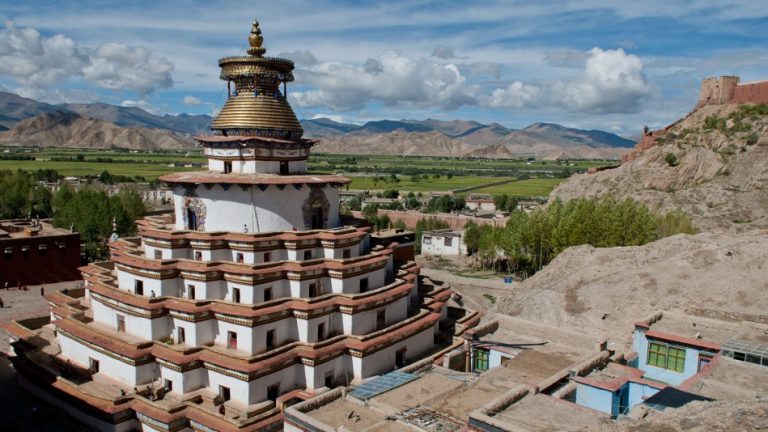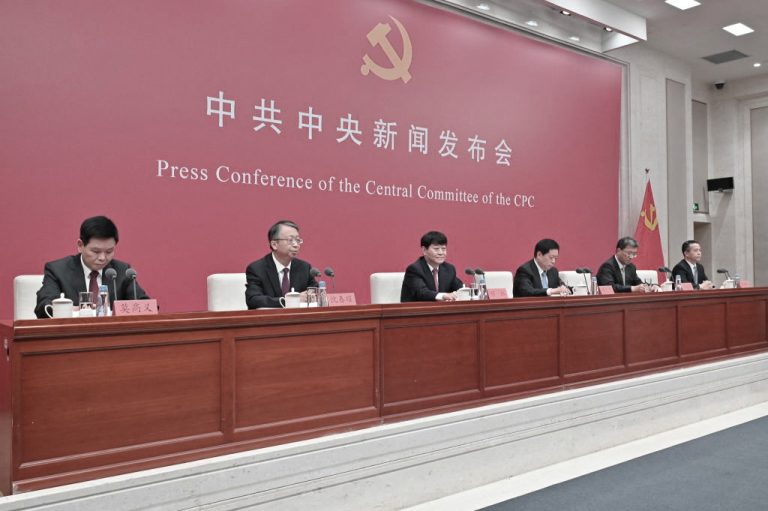President Donald Trump signed the “Reciprocal Access to Tibet Act” on Wednesday, Dec. 19, a law that calls for the U.S. government to investigate which Chinese officials are responsible for restricting access to American visitors and journalists to the Tibetan region. Per the Act, those officials are to be sanctioned and barred from entering the United States.
The Tibetans, numbering several million, have been oppressed by the Chinese Communist Party (CCP) for decades, with hundreds of thousands of people killed and the region’s ancient Buddhist traditions trampled underfoot. Because of the sensitivity associated with Tibet, access to foreigners is highly restricted.
The Party-run Global Times reacted with panic to the Trump administration’s passing of the Act. It commented that by taking concrete action, the U.S. government had gone beyond its previous practice of only making verbal criticism of China.

The invasion forced many Tibetans to abandon their traditional lifestyles and resulted in the death and imprisonment of hundreds of thousands more. (Image: Ras67 / Wikipedia)
According to the Reciprocal Access to Tibet Act, the Chinese government must allow U.S. citizens, including tourists, journalists, diplomats, and Tibetan-Americans who wish to visit relatives, to travel to Tibet without restriction. The law aims to counter the CCP’s strict restrictions on foreigners, including from the United States, entering Tibet.
According to the law, the U.S. Secretary of State is to assess the extent to which U.S. citizens are allowed to enter Tibet over the next 90 days, and then submit a report to Congress that identifies the Communist Party officials responsible for preventing Americans from entering Tibet. The Secretary of State will then ban these Party officials from getting a visa and entering the U.S.
Success
You are now signed up for our newsletter
Success
Check your email to complete sign up
Overseas Tibetan organizations have praised the Act’s promulgation as a watershed moment for human rights in Tibet, as it creates real consequences for the CCP and its officials.
The Global Times editorial, published Dec. 20, expressed concern that the “Reciprocal Access to Tibet Act” would become a model for similar legislation targeting other Chinese regions and groups, such as Xinjiang Province in northwestern China.
In Xinjiang, the Uyghur Muslims have been systematically moved into concentration camps to be re-educated in communist ideology and “sinicized” in a process that destroys their religion and ethnic culture.

Tibetans going for prayers. Tibet has always been considered a mysterious place because of its unique culture and celebrated monasteries. (Image: Li Jun Han)
Apart from Tibetans and Uyghurs, the Communist Party has pursued a nationwide campaign against the traditional spiritual practice of Falun Gong for nearly 20 years, brutalizing the practice’s tens of millions of Chinese adherents with methods ranging from detention to murder by organ harvesting.
The Global Times warned that while the Act focusing on Tibet only targets CCP officials, it could be expanded to include more categories of Chinese visitors to the U.S. The Global Times noted that the children of many Party officials study into the U.S. and that the risks of Chinese going abroad in future could increase.
The Chinese government has condemned the act and said that the United States would have to bear “consequences” for its actions.
The “Reciprocal Access to Tibet Act” was proposed by Massachusetts Republican Senator James P. McGovern in April this year. It was passed in both the House and Senate of the U.S. Congress before being sent to the White House to be signed by the president.
Since February 2009, a series of Tibetan self-immolation incidents have occurred in some ethnically Tibetan regions of China in response to the CCP’s suppression of Tibetan Buddhism and culture. According to the Apple Daily, the International Tibet Post, and the Free Times, as of November 2017, at least 150 Tibetans — including lamas, nuns, farmers, and herders — have set themselves on fire, with 126 dying. Woeser, the Tibetan female writer and poet, called it “the greatest and most tragic wave of political protest in modern history.”
Follow us on Twitter or subscribe to our weekly email







